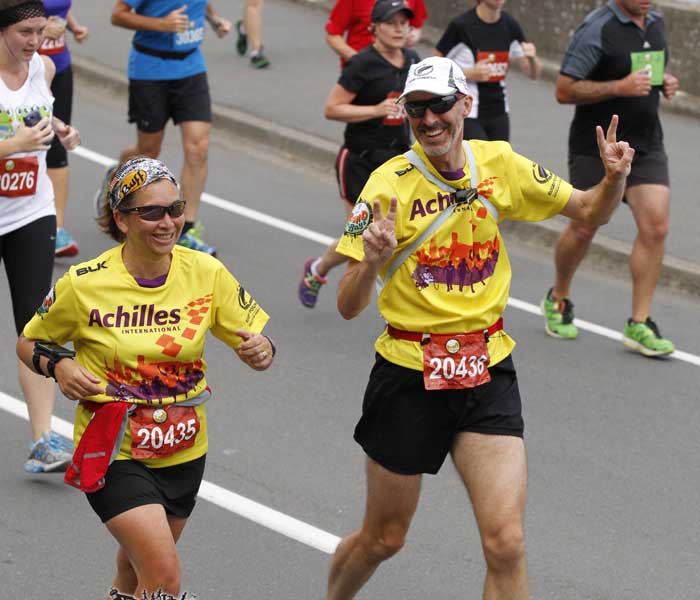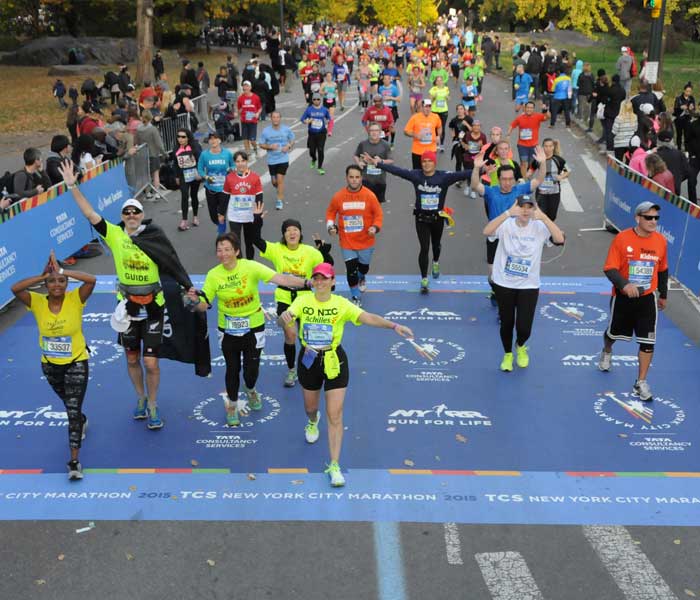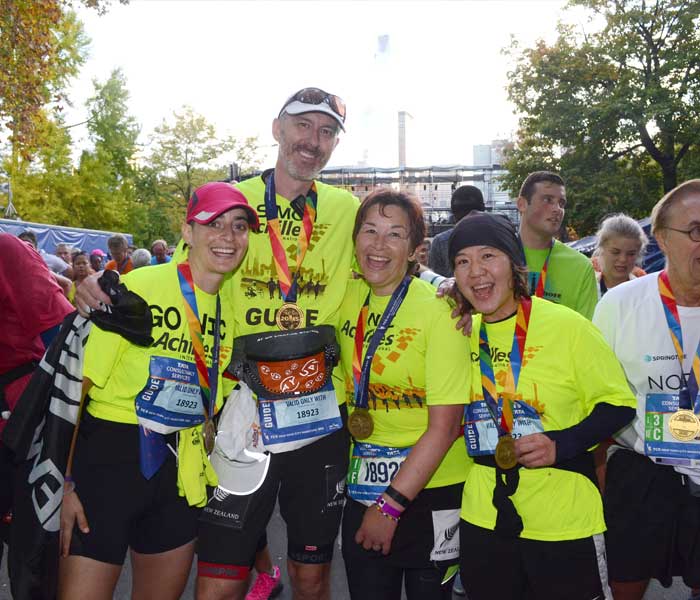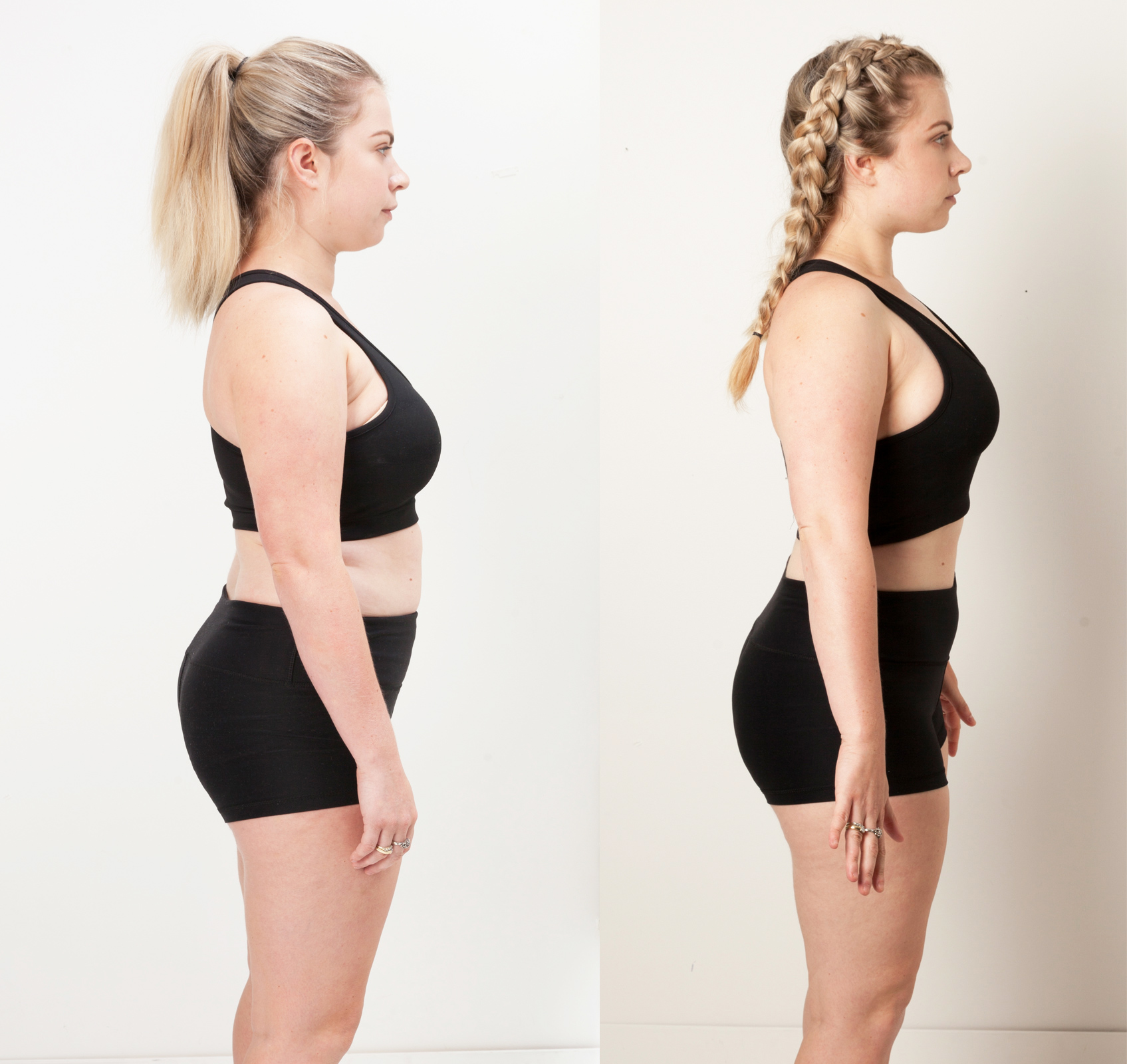Mother, midwife, marathon-runner and published author – Nicola Miller-Clendon had all her hopes and dreams set in motion. Her days were busy and full – working in birthing units, dropping off and picking up her five kids, and exercising whenever she got the chance. To unwind she would relax in her secluded family home in the Auckland suburb of Remuera, listening to the native birds and cicadas singing.
But that all changed four years ago.
“I woke up one morning and I couldn’t see. It lasted for an hour. If I’m honest, I don’t know why I wasn’t more scared,” says the now 51-year-old. “I guess when something bad happens you try to rationalise it until it doesn’t seem like such a big deal any more.
“The next morning it happened again, but this time it lasted for two hours. On the third morning my sight didn’t come back,” she says.
It took several days in hospital being treated with steroids before she was able to see again.
Nicola had been suffering from other unexplained symptoms for more than a decade – some days she was so tired she couldn’t walk at all, and other times she slurred her words – and she knew something was seriously wrong. But what she didn’t know was that it would be the biggest fight of her life.
“It was a junior doctor who actually first mentioned multiple sclerosis (MS). I remember a kind of light bulb moment when I realised, yes, that actually does explain a lot of my symptoms.”
For Nicola, her diagnosis brought more relief than panic. After 15 years of symptoms and countless doctors’ visits, Nicola finally knew what she was up against.

MS has meant Nicola has had to spend time in a wheelchair, but she has been able to get on her feet again and continues to run.
“I had always known something was wrong. But it’s like everything was treated as an isolated incident rather than anyone actually piecing it all together,” she says.
Nicola had been to a neurologist and a rheumatologist a number of times, always being sent away without a proper diagnosis.
There were four major symptoms that triggered her determination to find an answer. The loss of her sight was one.
Also, she says, “My speech got really slurred and I couldn’t swallow. And then because I was a marathon runner, I was training for the Rotorua Marathon and I could run quite happily and then all of a sudden I couldn’t even walk 500 metres.”
The nature of MS is that symptoms can appear, then go away again. While her sight had returned, Nicola soon found herself spending time in a wheelchair.
“We were worried that we were going to have to leave our home because at that point I couldn’t get up the stairs. For a while I would just crawl up the stairs and bounce down.”
Nicola’s youngest son had the most difficulty coming to terms with her MS diagnosis.
“He was only 10 when I was diagnosed. He developed anxiety due to this because he was so worried all the time.”
The once energetic mother says she was devastated at the thought of not being able to do “normal mum things” for her two youngest children.

“I couldn’t go and meet my kids after school at the gates because I couldn’t get out of the car. At least with the older ones I had been really involved but now with the younger ones I haven’t been able to do that for them,” she says.
Nicola was also forced to give up her job as a midwife. After enquiring about what options were available to her later down the track when her condition started to deteriorate, Nicola was told that she would need to undergo a series of health tests before she was allowed to practice again.
“Suddenly not only had my health gone, but so had my job as a midwife, which I loved and had been doing for 15 years.”
She spent three years fighting to get her career back, forking out hundreds of dollars to be passed backwards and forwards between neurologists and neuropsychologists before she finally admitted that it was a losing battle.
“It was just awful,” she says.
But Nicola refuses to let this disease bring her down.
“I think now I am more focused and determined. When I was in a wheelchair I went to a rehab gym and I watched people with trauma head injuries in their electric wheelchairs making progress, and I thought I can do that. So I started rebuilding my strength.”
Nicola now works as a customs officer at Auckland Airport, and says she is thankful to have the opportunity to work full-time again.
She also continues to compete in marathons, determined to continue doing the things that make her happy. Last November she ran the New York City Marathon for the second year in a row, with her husband cheering her on from the sidelines.
“It was wonderful because I have run alongside blind people, guys in wheelchairs, and a girl who has cerebral palsy, as well as someone with really severe asthma. It’s incredible to see disabled people running together in an able-bodied event in New York City. We all did it,” she says proudly.

An ecstatic Nicola and fellow runners at the completion of the New York City Marathon.
Nicola admits she has had to give up some of her dreams, such as publishing her first fiction book, because her MS symptoms mean the book writing process is now unrealistic.
“My memory loss issues made it almost impossible for me to continue writing. I couldn’t remember what I had written in my own book. I was basically writing a whole separate book of notes just to remind myself what I was doing.”
However, Nicola says it has only made her more grateful for the three books she has already had published – covering parenting and baby loss – and the opportunity they have given her to help others. When writing the books she was able to draw on her knowledge as a midwife and her own personal experience of having three miscarriages and one stillbirth.
Since her diagnosis, Nicola has learnt to no longer take things such as running for granted. But, she says, “MS isn’t a death sentence. You can do things. It’s very much a mind over matter type of diagnosis. You can say, ‘Okay, I’m going to sit in this chair for the rest of my life and not try, or I can try and if I fail then so what.’”
Nicola says the biggest lesson she has learnt from her diagnosis is that there is always a way forward. “Whatever happens, you can adapt and you’ve just got to look at different ways of managing things,” she says.
“I do think I’m a lot happier and much more resilient now. Yes I’ve got MS, but I’m still going and that’s something to be happy about.”
Multiple Sclerosis Auckland is hosting a celebrity rugby debate and charity auction on June 6 to raise funds for those affected by MS. See coth4MS.com for details.
For more from The Australian Women’s Weekly, follow us on Facebook or Instagram.


